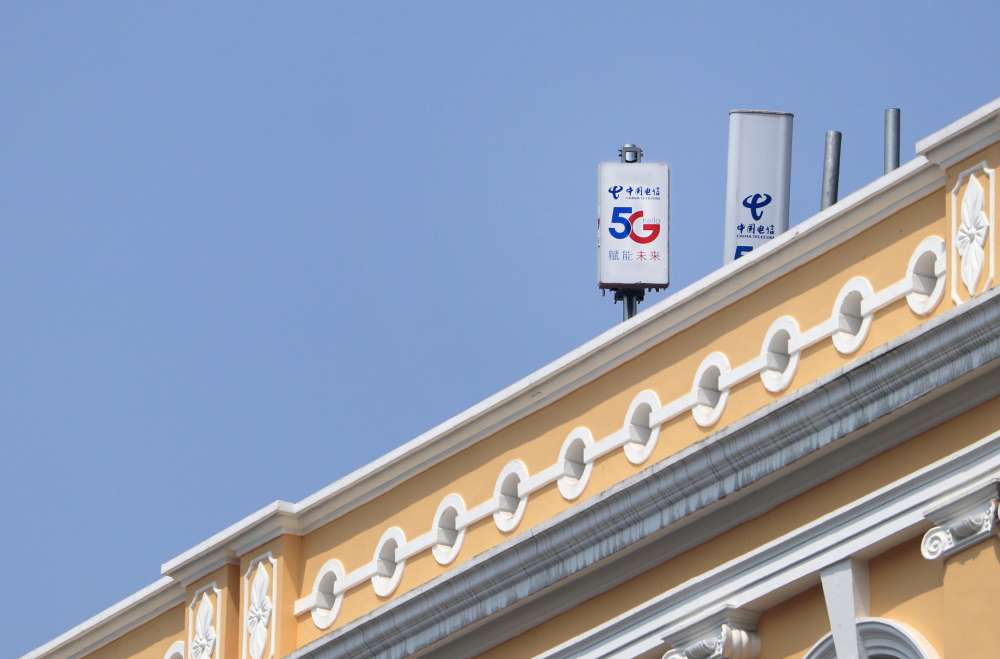Internet Companies Cannot Be Judges of Free Speech

For U.S. internet corporate giants, Germany has become ground zero in the global regulatory battle on how to deal with hate speech on social media platforms.
Facebook’s concern that the draft of a new law currently making its way through the German legislative process “would force private companies instead of courts to decide which content is illegal in Germany” is spot on.
Rather than reigning in social media behemoths, the law risks reinforcing their role as online gatekeepers in what critics have called “vigilante justice.” The government will never get to the root of the problem — deterring offenders from posting hateful content — if it outsources the job.
The draft bill — approved by Chancellor Angela Merkel’s cabinet with an eye on federal elections in September — seeks to better enforce existing laws related to hate speech and the spread of false news on social media platforms.
The bill did not come as a surprise. Merkel has put pressure on Mark Zuckerberg to address the spread of hate speech on Facebook back since fall 2015, and German Justice Minister Heiko Maas has repeatedly pushed social media companies to make commitments on improving their own policies for addressing problematic posts.
But their efforts don’t seem to have worked — Facebook has deleted just 39 percent of what the German government deemed unlawful content on its platform; Twitter only 1 percent.
Maas is now attempting to make up for companies’ lack of commitment with an overeager attempt to privatize the policing of the public sphere. According to the so-called Network Enforcement Law, which only addresses the enforcement of existing laws on crimes such as hate speech, defamation or incitement to violence, operators with more than 2 million users must delete “evidently unlawful” content within 24 hours. Where the legality is not fully evident, operators have up to seven days to make a decision. Companies face penalties of up to €50 million if they fail to set up appropriate systems to comply with the law.
Because they face heavy penalties, companies are incentivized to set up processes that err on the side of deleting potentially illegal posts, rather than keep them up. They do not have to inform users before taking such a measure, although they must save the content on their servers for 10 weeks. This is highly problematic as it risks infringing users’ rights.
With his draft law, Maas sees himself as in the tradition of the EU’s e‑commerce directive, which establishes a liability for providers if they do not remove or disable access to information once they become aware of its illegal character. But this directive — adopted in 2000, well before Facebook and other social media platforms were founded — was intended to deal with copyright violations, not hate speech on social media platforms.
Certainly, nobody saw “intermediary service providers” — as they were called — in the business of making trade-offs between free speech and other legal protections.
The justice minister’s decision to rush the bill through the cabinet in under four weeks was a clear bid to demonstrate ahead of the September elections that he is determined to take action vis-à-vis U.S. social media giants. What is less obvious is why he decided to delegate the sensitive legal task of assessing social media posts for illegal content to the platforms that host them.
Maybe he wants the social media giants to foot the bill for enforcing the law on their own multimillion dollar platforms. Or perhaps because police, public prosecutors and courts can only deal with a fraction of online violations, privatizing law enforcement to resourceful companies struck the justice minister as the only viable, short-term fix. Yet none of this can justify elevating social media operators to judges of free speech.
There is much to be welcomed in the German government’s determination to enforce existing laws on social media platforms. But this political willpower needs to be channeled in a more productive direction. The monopoly on law enforcement in such a sensitive area must remain a government competency.
When hate speech occurs offline, only the judiciary can make the call on whether utterances violate the law, and deliberate on punishment. Online, this task should not be delegated to Facebook, Google and Twitter, and the punishment should not simply be the deletion of the post.
Germany would do better to invest in training police, public prosecutors and judges to more effectively deal with violations of existing laws governing hate speech on social media platforms. It must create additional positions to ensure complaints about possible criminal behavior are addressed swiftly and competently. This would ensure that criminal offenders face actual punishment, rather than just seeing their posts deleted.
To tackle the root of the problem, the government should go after the groups and individuals that feel empowered to break the law online in ways they never would offline. Only if they feel that they face the same punishment for online offenses as offline will they adjust their behavior.
Citizens must also be given the tools to easily file a case if they observe criminal behavior online. The system should also allow for emergency rulings and injunctions. To deal with perpetrators located outside the German or European jurisdiction, deleting a post may be the only easily applicable response, but they must also be subject to further legal action.
Of course, social media companies should be made to do their part and cooperate swiftly with the judicial and executive branches of government. In this regard, the bill is a step in the right direction, since it forces companies to appoint an official point of contact for dealing with the government on these issues. If they fail to comply swiftly with the authorities, that’s where they should face heavy fines.
Social media should also not be let off the hook regarding the enforcement of their own community guidelines. They should be mandated to improve their customer service and commit to dealing with user complaints within 24 hours using well-trained, qualified and appropriately paid staff — rather than inexperienced, external contractors working in awful conditions, as an investigation by Süddeutsche Zeitung showed was the case at Facebook’s offices in Germany up until late 2016.
The justice minister’s draft law is now with the lawmakers in the Bundestag. They would do well to vote to scrap the draft in favor of a bill that builds up the capacity of the executive and judiciary to ensure the full application of existing laws online in close cooperation with fellow EU countries.
Germany should work toward sensible updates of EU regulation such as the as the e‑commerce and audiovisual media services directives. This is how Germany can lead the way on the enforcement of hate speech laws in the new online public sphere.
…
This commentary originally published by Politico Europe on April 18, 2017. Research for this op-ed was conducted as part of the Transatlantic Digital Debates (TDD) program.







